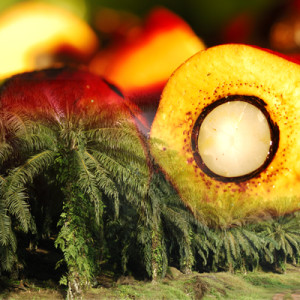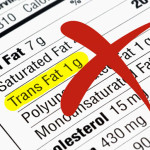Diets high in trans fats pose health risk for European citizens
Earlier this month, on 5th November, the European Parliament hosted a Workshop dedicated to trans fats, asking the question how Europe should proceed in dealing with such a major threat to the health of its citizens.
It is long overdue: scientists and food technology experts have been warning about trans fats for many years. Trans fats are known to have negative effects on cardiovascular health, cholesterol, type 2 diabetes, and obesity.
Diets high in trans fats were – and in some cases still are – risking the health of European citizens.
Fortunately, alternatives to trans fats exist: and palm oil plays a prominent role. Industrial trans fats often occur when food manufacturers change a liquid oil into a semi-solid structure. This is done by adding hydrogen, in a process known as ‘partial hydrogenation’. Partially hydrogenated oils contain trans fats – most commonly, these oils are soybean, rapeseed (colza) and sunflower oil. Palm oil has a naturally semi-solid component, and so does not require this industrial process.
Instead of altering the substance – as would be necessary with rapeseed or sunflower oil – palm oil can remain natural and 100% free of trans fats.
It is commonly reported that palm oil is present in a large percentage of food and household goods in Europe – up to 50% of all products in some countries. A major part of the reason for this is the desire to reduce trans fats consumption while maintaining high quality food. Many foods, such as cakes or pastries, require shortenings and other ingredients that need semi-solid fats. In a choice between partially hydrogenated oils (trans fats) and palm oil, many companies are increasingly choosing palm oil. it is better for the health of consumers, and also better for the finances – because of its superior yield, palm oil is less expensive than most other oils and fats, including butter.
NGOs that criticize and attack palm oil under false pretenses, many a time claiming it to be high in saturated fats are putting at risk the health of consumers. The main source of saturated fats (over 90%) in the European diet comes from animal fats: from milk, meat, butter, tallow, cheese, bacon and lard. However, animal fats such as edible tallow and lard are expensive and they contain up to 3000 parts per million (ppm) of cholesterol. They are therefore not desirable in the manufacture of margarine, shortenings and other fat products whereas palm oil is a preferred ingredient for such applications. The reduction of trans fats – thanks in large part to palm oil – is saving lives and improving health outcomes across Europe. Trans fats consumption is proven to be harmful – whereas palm oil is a balance of saturated and unsaturated fats that are part of a normal, healthy diet.
Palm oil is consumed in Europe generally in very small quantities and recent studies have confirmed, therefore, that palm oil and its constituent fatty acids do not pose a threat to health. Delhaize, Casino, and other European companies mounting scare campaigns should take note: by removing palm oil they risk raising prices for their customers, and lowering the health benefits of their products.
The Workshop in the European Parliament concluded a similar lesson: the expert speakers from the University of Copenhagen and the European Food Safety Authority (EFSA) both presented clear evidence of the risk from trans fat consumption. The Chairman, Glenis Wilmott MEP, stated that banning trans fats in Europe may be the best solution. That remains a realistic possibility – but palm oil is already helping towards the goal of eradicating trans fats, through its unique natural gifts.
I am sure the MEPs and others who heard from the experts can be in no doubt. The question is how to get these facts to the public and others in Europe. Denigration campaigns from protectionist supermarkets and biased NGOs have led to poor understanding of fats and oils in some countries, like France. Banning palm oil, as Casino has done, could lead to more trans fat consumption, an irresponsible and harmful course. It is up to the European politicians now, to move ahead. Palm oil has been successful within the food sector – perhaps now the EU’s politicians can do their bit for the health of their citizens.










Seems to be a widespread issue, unfortunately. People just barely seem to be learning how bad this stuff is in America, but its still ignored for the most part. We need some sort of world wide campaign for all these bad diet fads…